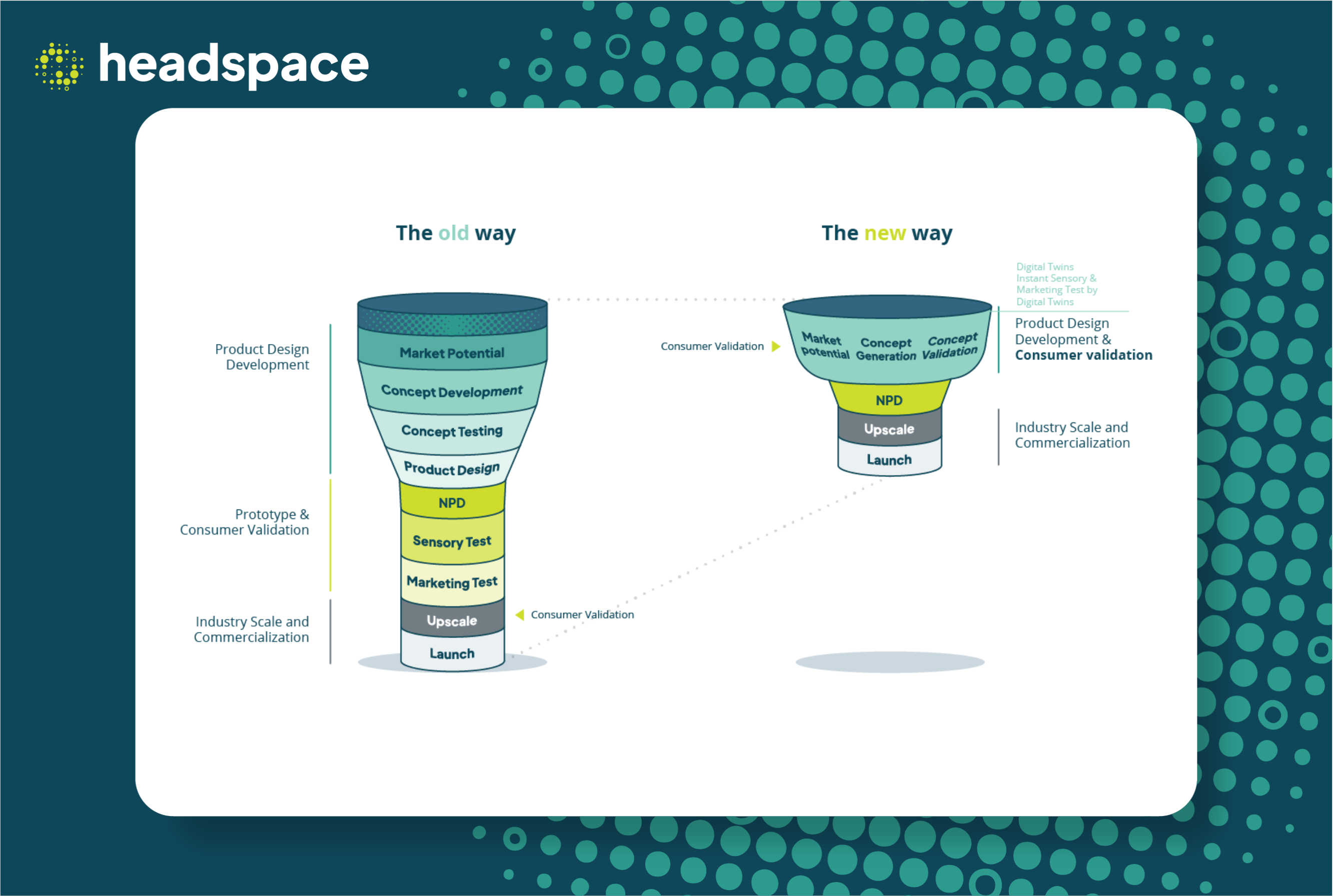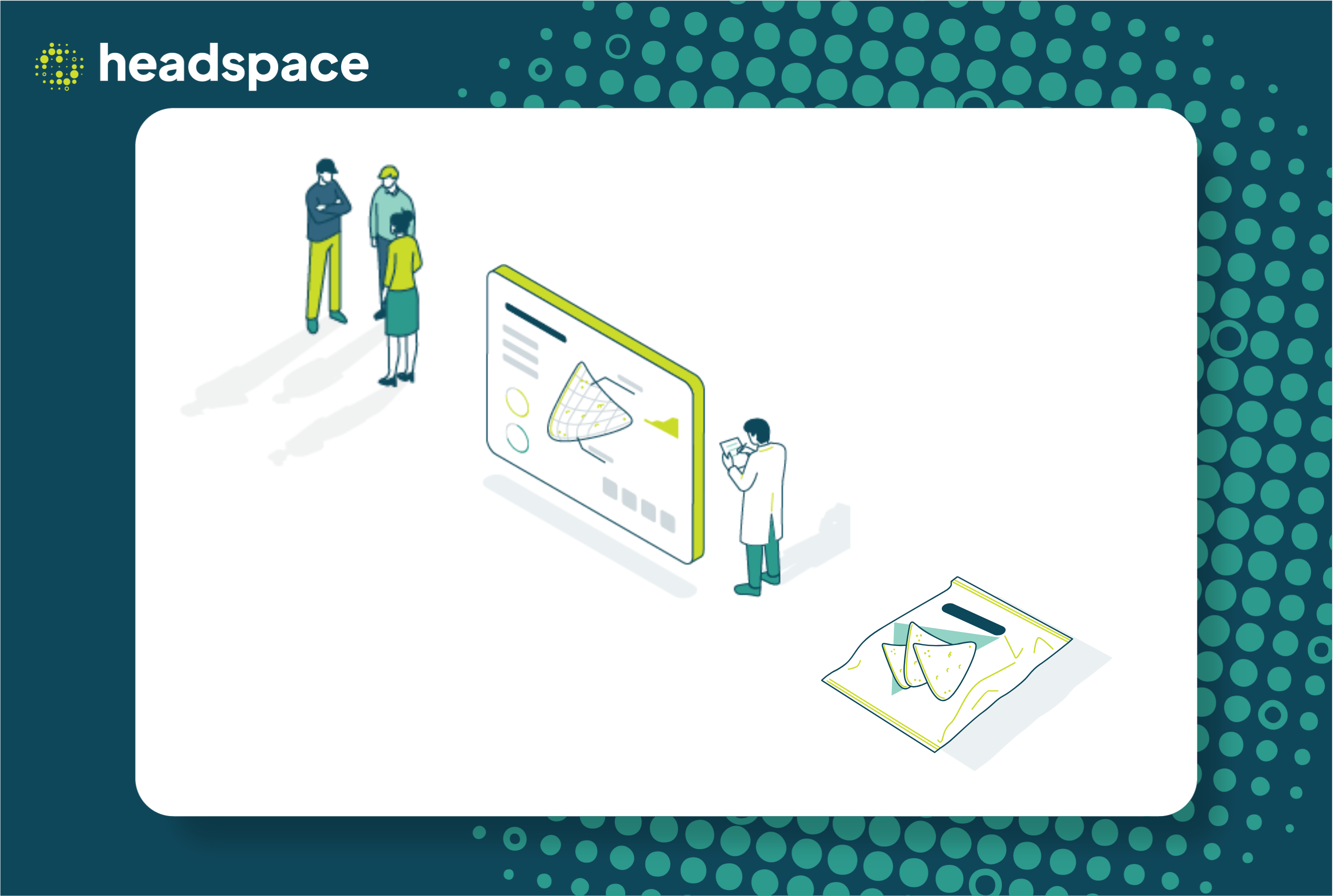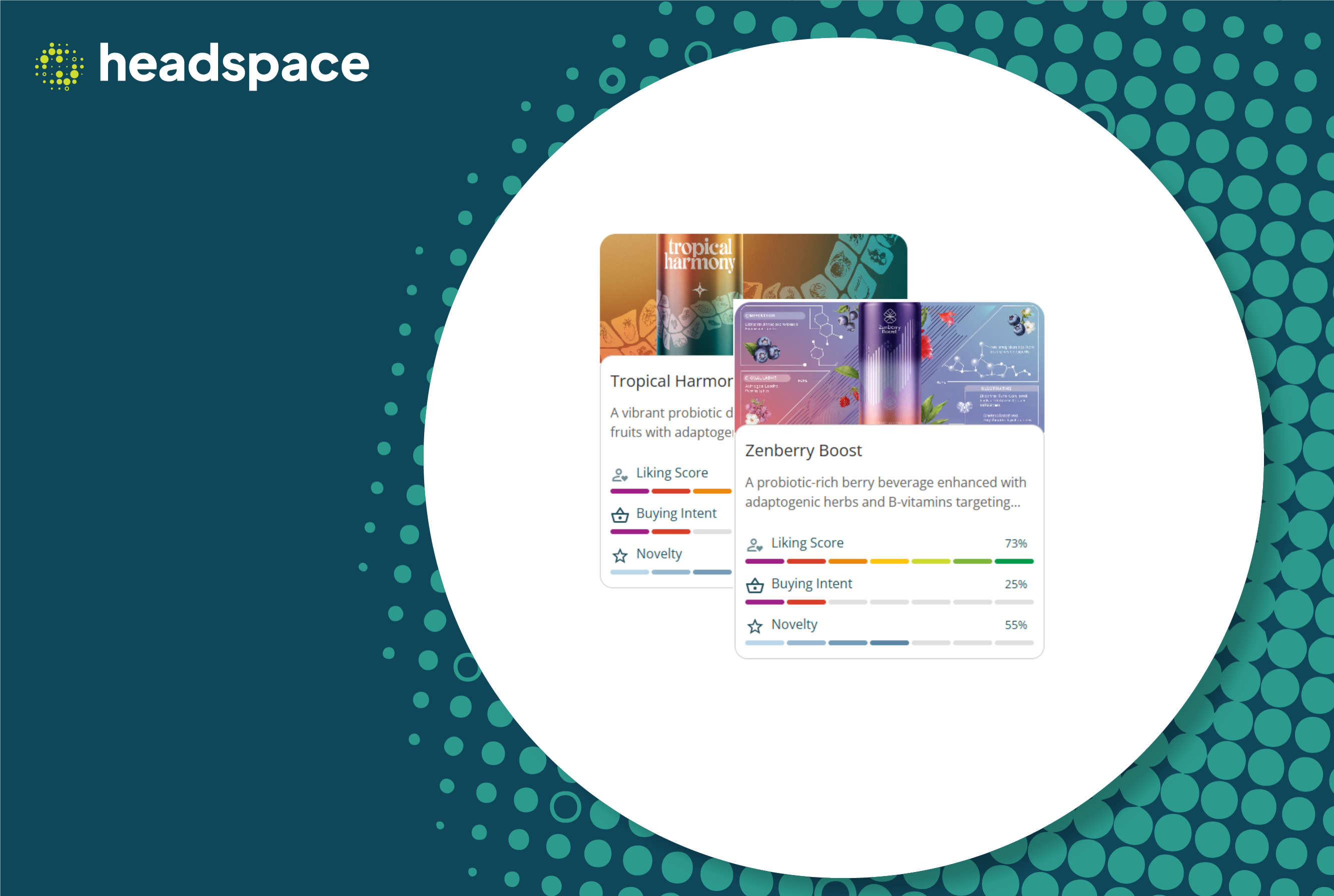2 min read
Consumer-centric innovation: A new standard for CPG brands
The CPG landscape has shifted dramatically. Where gut instinct once ruled, today's winners put consumers at the center of every decision. What...
3 min read
![]() Headspace by Foodpairing
:
Feb 26, 2025 12:45:41 PM
Headspace by Foodpairing
:
Feb 26, 2025 12:45:41 PM

For decades, the full stage-gate approach to product innovation in the food and beverage industry has been accessible mainly to large corporations with vast resources. They could afford extensive R&D teams, multiple rounds of costly consumer testing, and the inevitable failures that come with launching new products. The playbook was simple but expensive: develop multiple prototypes, organize consumer and sensory panels, gather feedback, iterate, and repeat until you find a winner.
This approach created a significant barrier to entry for smaller companies and startups. Without millions to spend on product development and consumer testing, how could they compete with industry giants?
But that playbook is being rewritten.
AI-powered product development is making consumer generation and consumer validation faster, cheaper, and more accessible.
Traditional product development relies heavily on:
1. Creating physical prototypes for each concept
2. Organizing expensive consumer panels for testing
3. Multiple iterations based on feedback
4. High costs for each round of testing
5. Months or years of development time
6. Significant risk of market failure
As one VP of Consumer Science at a major CPG company recently commented,
"Consumer testing is expensive, time-consuming, and still doesn't guarantee success. We need a better way."
Emerging AI and data technologies are changing this landscape dramatically. New platforms are combining molecular analysis, consumer preference data, and advanced AI to create virtual product testing environments. This allows companies of all sizes to have:
1. Concept Validation in Minutes – Test thousands of variations before making physical prototypes.
2. Data-Driven Insights – Predict consumer preference and purchase intent with AI-powered analytics.
3. Lower Costs, Higher ROI – Reduce reliance on traditional consumer panels while increasing accuracy.
4. Faster Time-to-Market – Cut development cycles from months to weeks.
5. Bias-Free Testing – Move beyond "gut feel" decision-making and get objective consumer insights.
The impact of this technological shift cannot be overstated. A consumer insights executive at a leading food company recently noted: "What tends to happen with us is they give the sales team a new tool, but it's costly. Smaller companies haven't had the budgets and resources to do this in the past, but now it's changing so fast."
What does the democratization of innovation mean?:
Historically, only the biggest players could afford extensive market research. Now, AI is leveling the playing field, allowing emerging brands to compete with established CPG brands.
For emerging brands and startups:
✅Compete with industry leaders on innovation speed
✅Reduce risk by validating concepts before launch
✅Optimize product-market fit with data-driven consumer insights and validation
For the industry:
✅Increased competition driving better products
✅Faster product development cycles
✅Reduced dependency on physical prototypes
The transformation is already happening. As one industry executive observed, "This is democratizing innovation for everyone, which creates a new playing field. They didn't have the budgets and resources to do this in the past, but now it's changing so fast."
However, some traditional players are skeptical. During a recent industry meeting, a VP at a major food company expressed concern that these new technologies would make her team "obsolete." But this misses the point - these tools aren't replacing human creativity and expertise, they're amplifying them and making them accessible to companies of all sizes.
If you’re in the CPG space, now is the time to integrate AI-driven product testing into your innovation pipeline. Integrating this would mean you can:
The democratization of product innovation through AI and data is leveling the playing field. The question is no longer whether smaller companies can compete with industry giants on innovation - it's whether the giants can keep up with the agile, data-driven approach of modern startups.
The future of product innovation isn't about who has the biggest R&D budget - it's about who can best leverage these new tools to understand and meet consumer needs. And in that future, startups have just as much chance of success provided they use the tools and data in the right manner.
AI-powered platforms like Headspace are making fast, cost-effective, and data-driven innovation accessible to all brands—from startups to global CPG leaders. Interested in creating products consumers will buy, love, and buy again? Explore how tools like Headspace are revolutionizing product innovation.

2 min read
The CPG landscape has shifted dramatically. Where gut instinct once ruled, today's winners put consumers at the center of every decision. What...

Despite their best efforts, many Food & Beverage (F&B) innovation teams still struggle with one frustrating reality: their products fail to resonate...
.png)
The innovation drought (or not?) Walk into any grocery store and you'll hear the same narrative: CPG innovation is dead. Shelves dominated by...